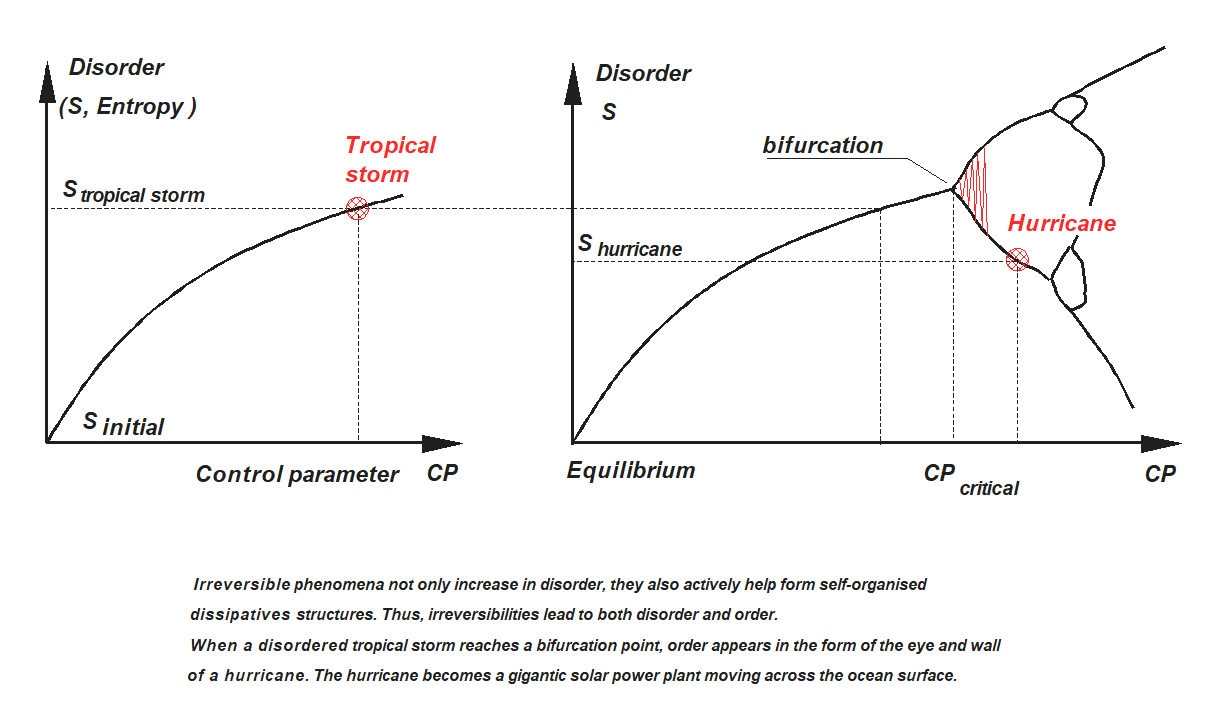Justification of the Principle of Worst Action
James Joule, for which the SI unit of energy is named, wrote, “Believing that the power to destroy belongs to the Creator alone, I affirm … that any theory which, when carried out, demands the annihilation of force, is necessarily erroneous.”
The principle of worst action states that order in a dissipative structure must be destroyed when this structure becomes dangerous to humans. Thus, the aim of the worst-action principle is to cause great disorder at the molecular level to prevent chaos at our macroscopic level.
Some people may be upset or offended at the thought of applying this principle to hurricanes. In fact, some writings say that hurricanes (and other natural disasters) are blessings from God, while others claim they are divine punishments. It is therefore essential to show that God has nothing to do with hurricanes and thus has nothing to do with the principle of worst action.
An initial proof of the public utility of this principle can be shown by applying it to valves in a nuclear power plant. No one would ever think to say that, instead of dampening the vibrations of valves, fluid should be allowed to flow unchecked, causing power plants to vibrate and leading to accidents of global proportions. Is it reasonable to allow chaos reign over safety valves and other mechanical parts when their purpose is to protect humans, property, and the environment?
Find out more about nuclear power plant valves
Bifurcation Diagram of a Tropical Cyclone
A hurricane acts as a valve, releasing thermal energy accumulated in the tropics during the warm season.
Find out more about tropical cyclones
Thrown off balance during the summer months by excessive temperature differences between the ocean’s surface and the upper atmosphere, a disorderly tropical storm can radically transform into a much more orderly hurricane following a bifurcation and varying degrees of chaos. A hurricane is a dissipative structure in which matter and energy are exchanged with the waters of the tropical seas. It is composed of order and disorder.
The dissipative hurricane structure functions like an open-air heat engine, moving over the ocean surface. The engine draws its fuel from the heat sink formed by the top layers of the ocean and uses it to become devastatingly powerful. The dreaded hurricane releases its driving force in the form of havoc on land.

When a hurricane forms, its molecular system becomes organized. The weather system’s entropy decreases when a tropical storm turns into a hurricane. The system has received information about the about the state of the sea, transmitted by the collective intelligence of the molecular system. A hurricane’s monumental spatial organization is controlled by the many relationships between its molecules. By destroying this control, that is, by applying the principle of worst action, we can attempt to destabilize the hurricane and downgrade it to a tropical storm that is less aggressive and much more useful for the thermal balance of our planet.
Where is God in all of this?
God would be unhappy if the entropic level of a hurricane when it first formed were reduced to a much lower level, or even to zero, becoming massless, like photons. This is obviously not the case by any stretch of the imagination.
But is it possible?
Newton spent as much time studying the Bible as he did science. He believed that God exists and that He created the world, but Newton also believed that God does not meddle in human affairs, whether they are to do with nuclear power plant valves or tropical cyclones.
Hurricanes, valves, and the like are objects that exist in the natural, material world. Perfect phenomena surely exist in the world of light, where they are devoid of mass and thus seem eternal.
This clear demarcation between the two worlds justifies the use of the principle of worst action, which is useful only for avoiding excesses of natural phenomena which are harmful to humanity.
